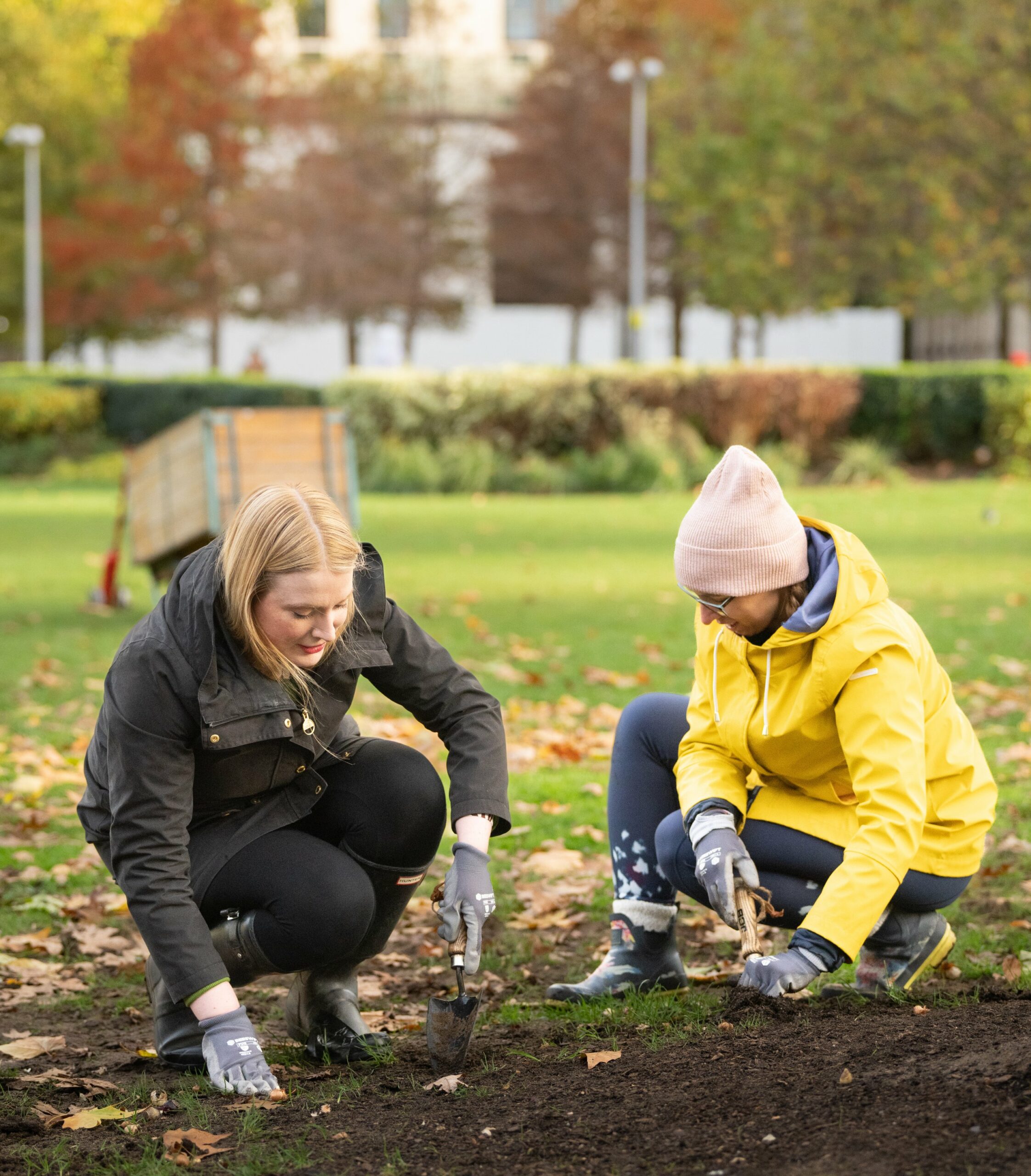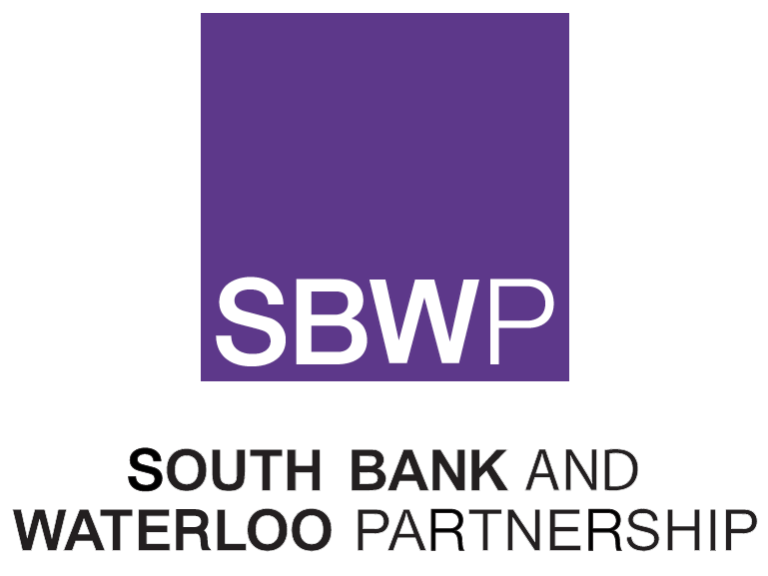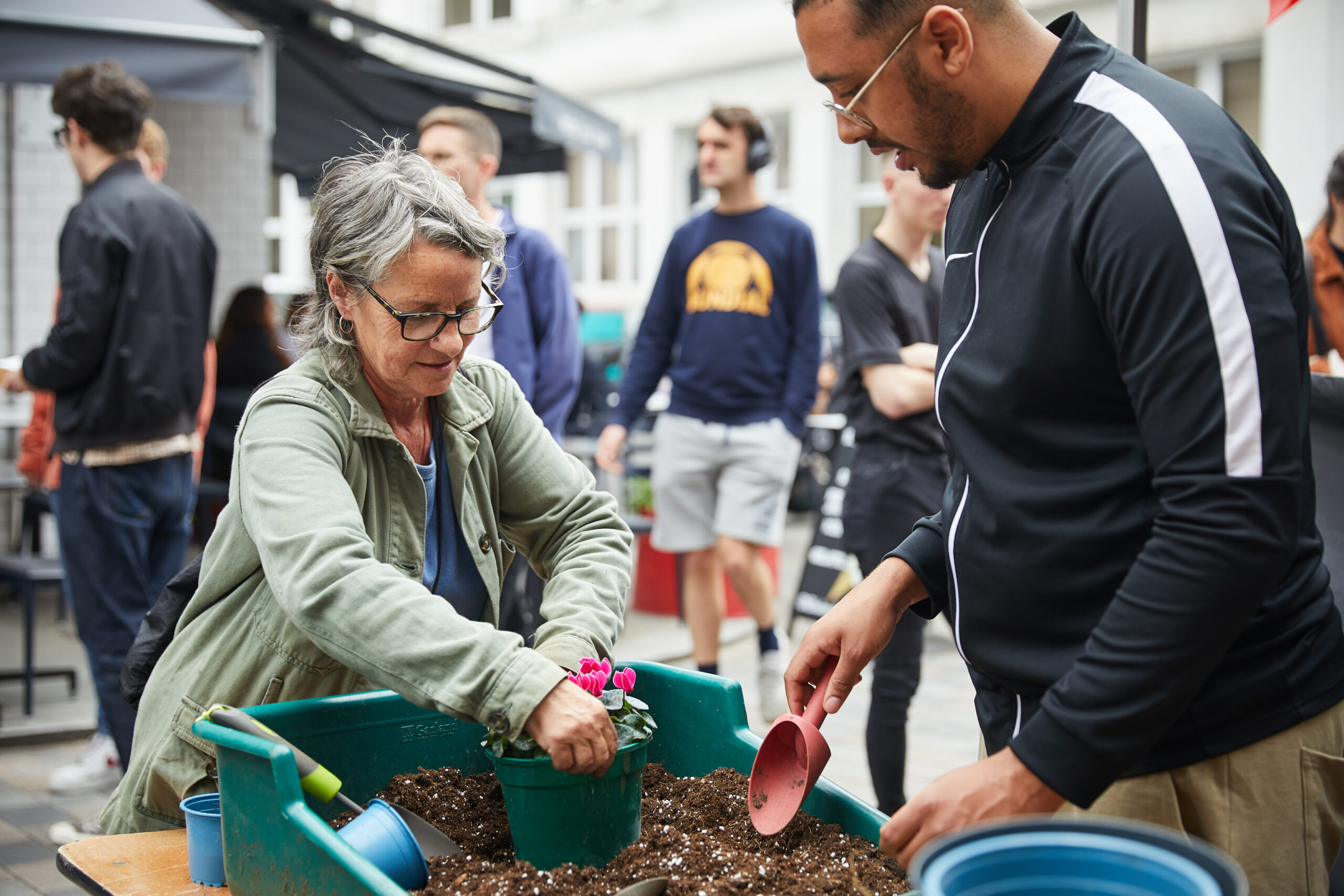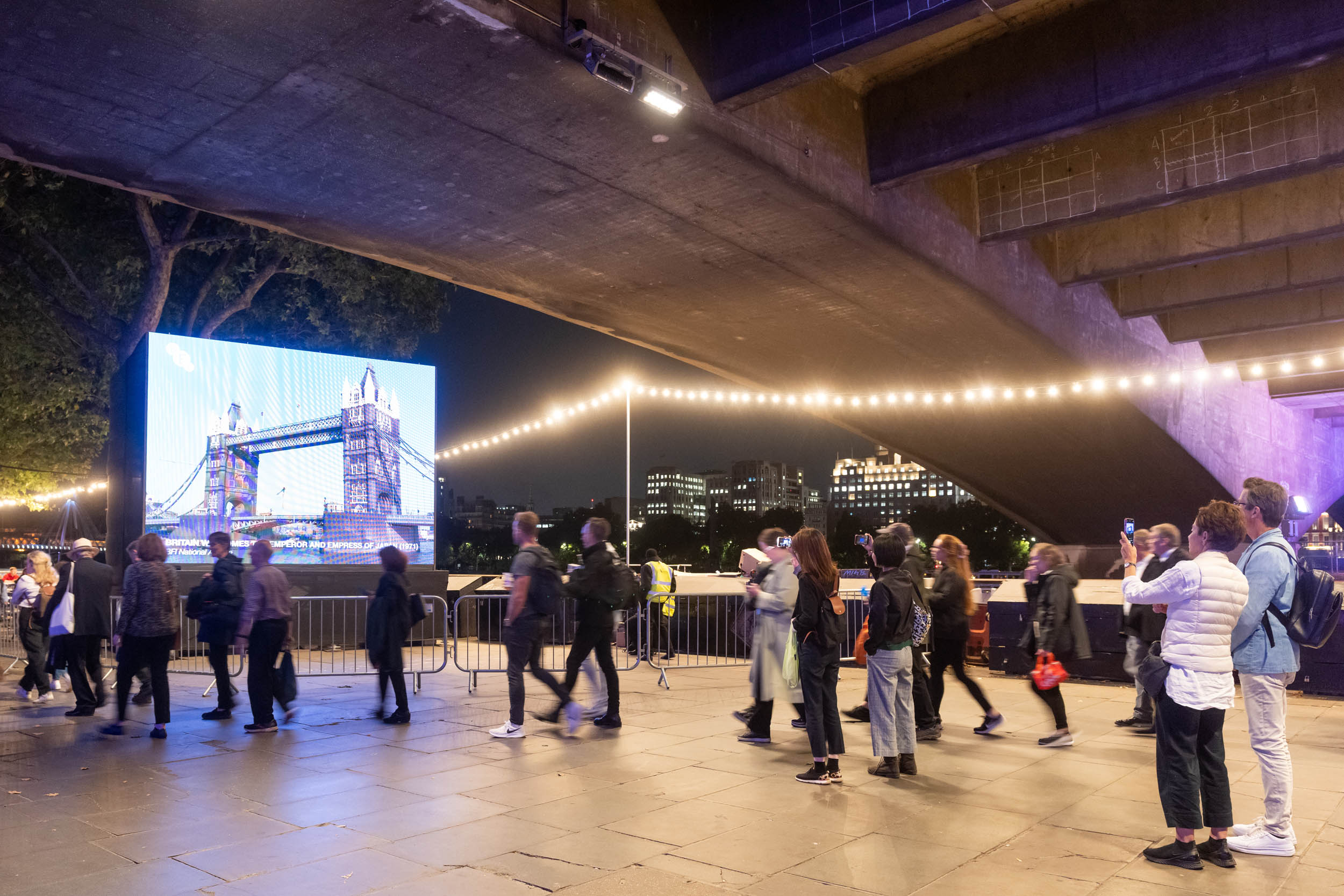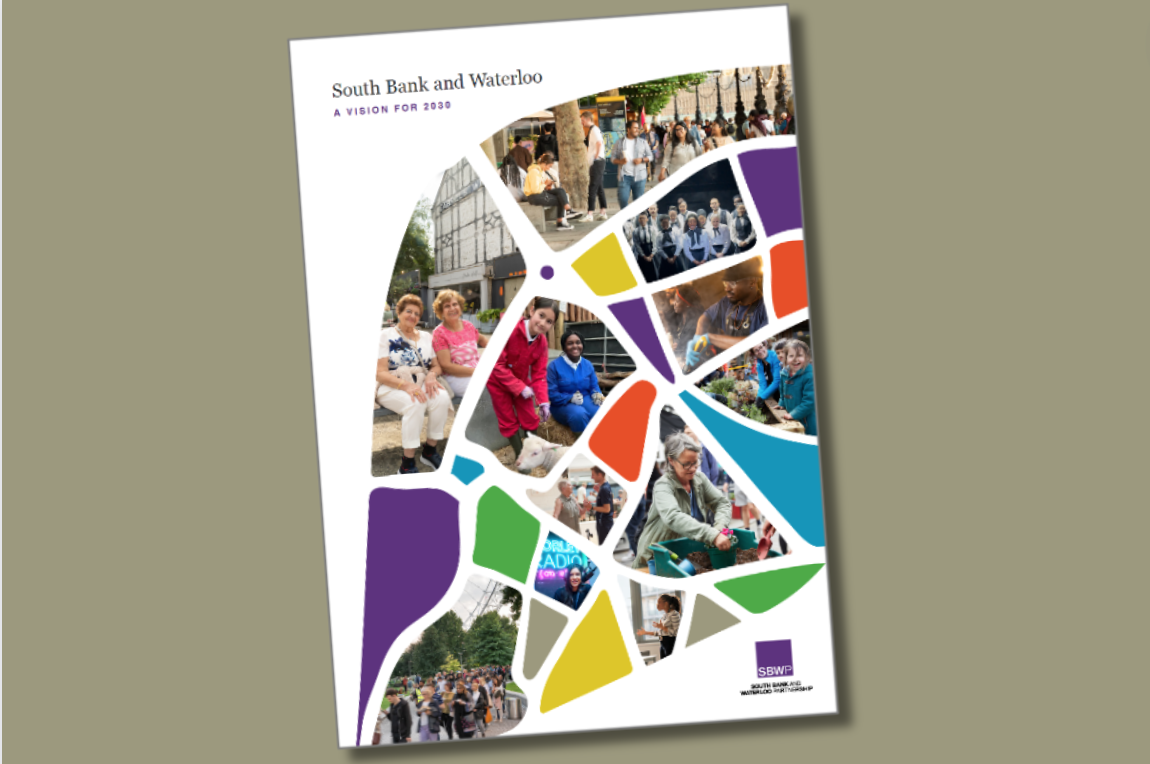our vision to 2030
Our collective vision of a green and thriving South Bank and Waterloo for everyone by 2030 is based around three pillars which provide the foundation for a transformation of our area: an inclusive place, a place of opportunity and a net zero carbon neighbourhood. Each pillar has a number of shared priorities, as outlined below, which will help us collectively achieve our vision.
You can read and download the full South Bank and Waterloo Vision 2030 here.
An inclusive place
South Bank and Waterloo is a uniquely vibrant and diverse area at the heart of London that is safe, green, welcoming and accessible for everyone.
- Safety and security: Everyone should be safe in South Bank and Waterloo
- A quality and attractive environment: Safe, green and pleasant public spaces for everyone to enjoy
- Accessible to all: A welcoming and inclusive place for everyone
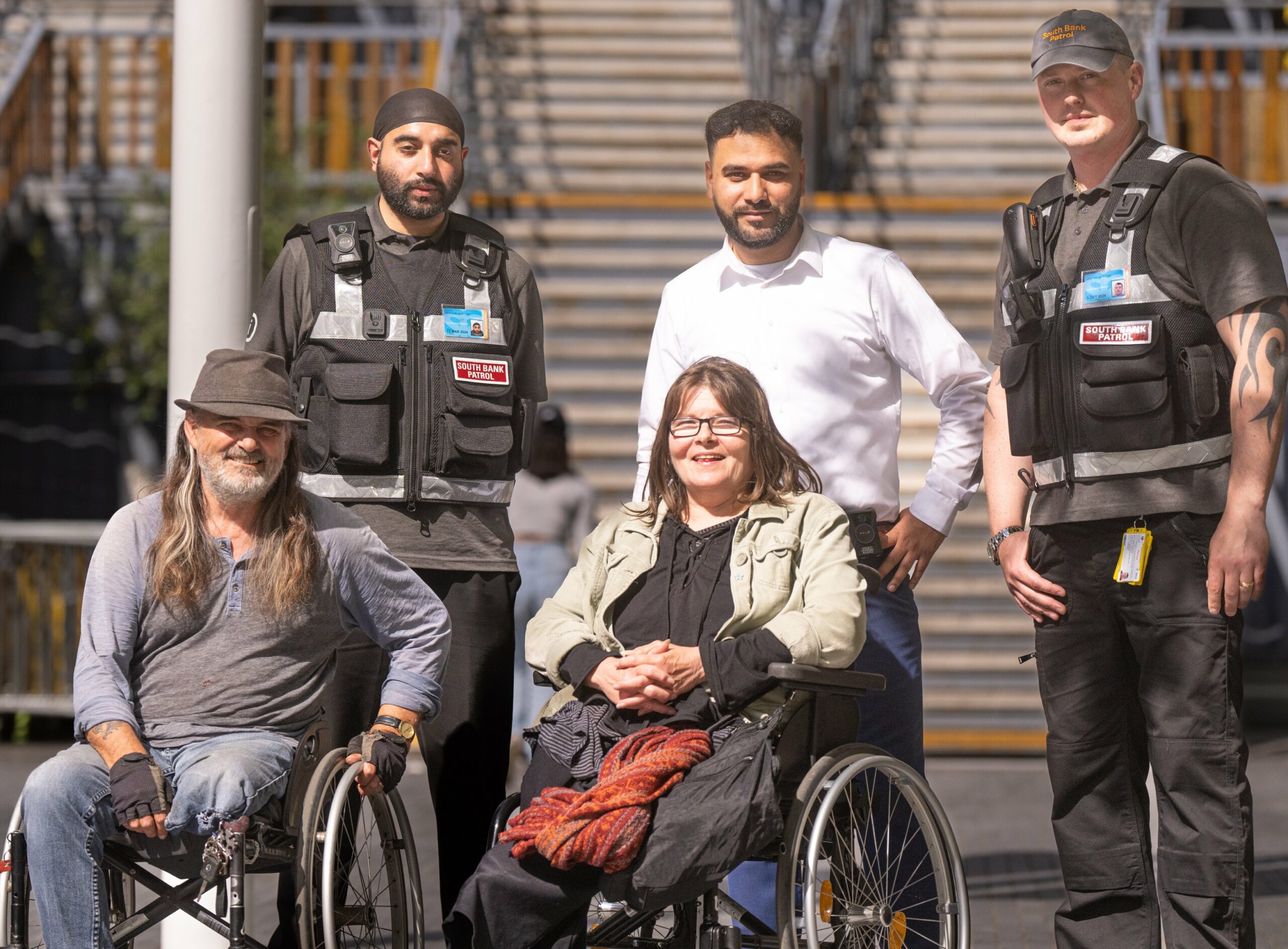
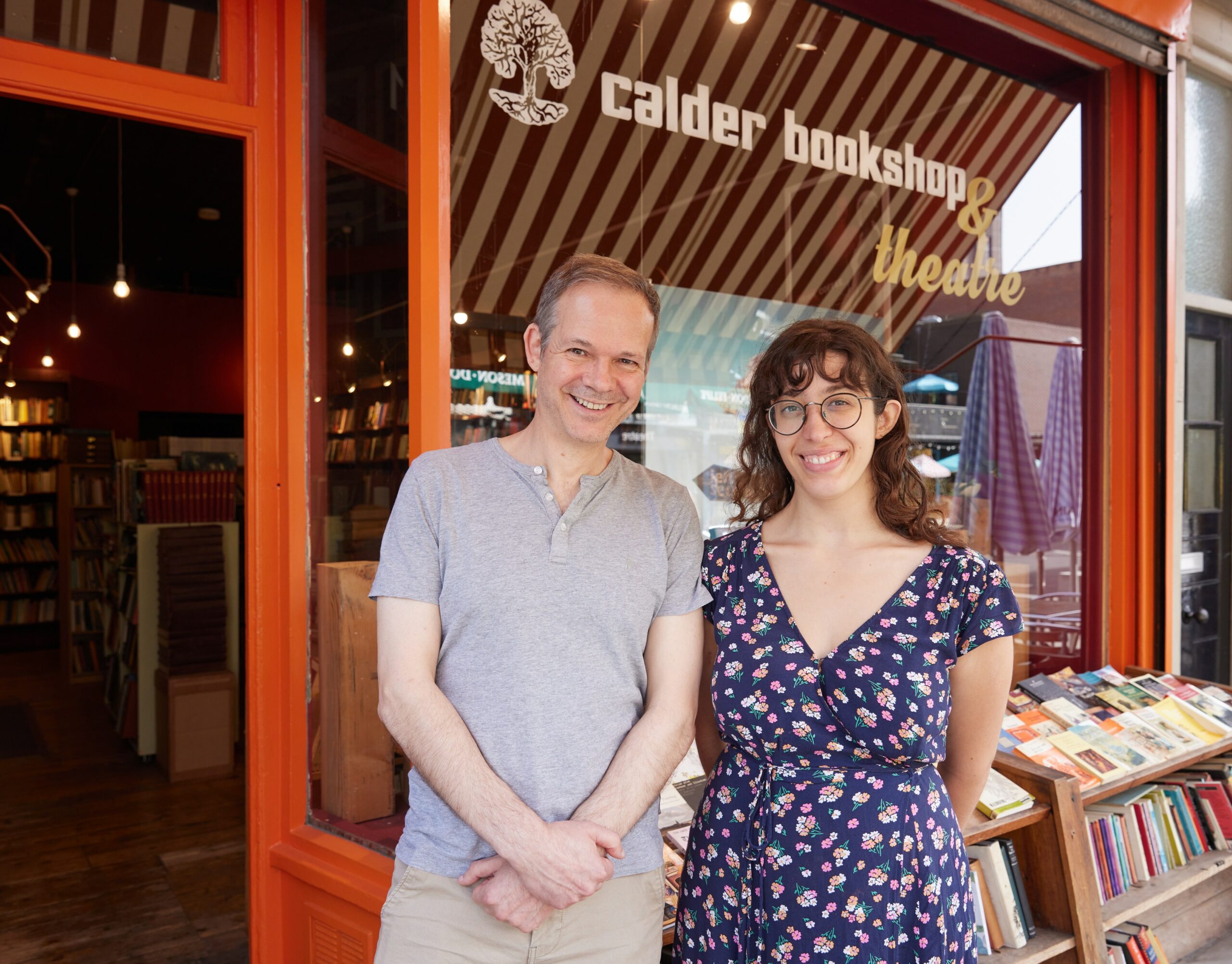
A place of opportunity
South Bank and Waterloo is a place of fairness, with economic prosperity and resilience for all, and where everyone’s lives are improved through access to good jobs, training and business opportunities.
- Economic prosperity: Economic opportunity for everyone
- Growth and development: Development which benefits everyone in South Bank and Waterloo
- Jobs, skills and learning: Everyone should be able to access quality jobs and learning opportunities locally
A net carbon zero neighbourhood
Extensive work has been done on developing Net zero for Waterloo and South Bank: A fairer, greener Future Neighbourhood by 2030 which sets out how we aim to tackle the effects of the climate crisis in the area and develop a net zero and resilient neighbourhood where local communities will be inclusive, greener, healthier and thriving.
The following shared priorities are a summary of the key objectives outlined in that document.
- Climate resilience: Improve energy efficiency of existing buildings and create a decarbonised, smart and integrated energy system
- Healthy and thriving communities: Our neighbourhoods are climate adapted, resilient and green for everyone
- Greener and cleaner: Improving air quality and the circular economy
